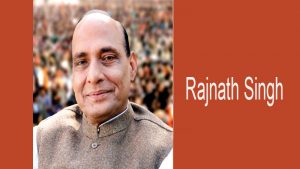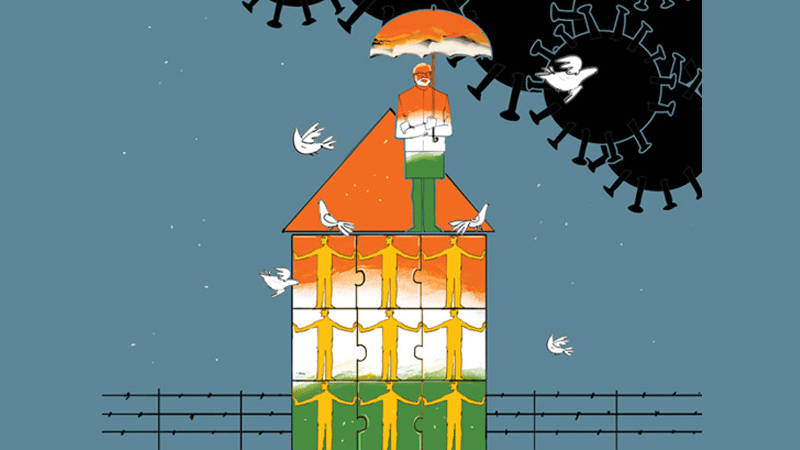India has shown extraordinary solidarity, forbearance and leadership skills

Facing the exceptional challenge of stopping Covid-19 from spreading further, the nation has shown tremendous solidarity and patience. When it started, the lockdown seemed an impossible notion, more so in this country. Now, even after an extension, people remain steadfast in their resolve to protect themselves and their fellow citizens from the virus.
The way 1.3 billion Indians have joined hands against the pandemic is unprecedented in world history. Generations to come will wonder how it was made possible in a country like India. I am convinced that this would not have been possible but for extraordinary leadership.
The infection is, of course, spreading and the battle is far from won. Yet, we have reasons to feel confident, because the magnitude of the outbreak has been very limited in India, compared to the numbers in other parts of the world. This should be surprising, because India is not only a developing nation with limitations in public healthcare infrastructure and resources; it is also a vast country with high population density.
If the only way to stop the virus from claiming human lives was to keep a safe distance from fellow human beings, then the battle might have been as good as lost even before it began. How do you get the message across to a vast population, with different levels of literacy and access to the news media? What about cultural barriers? It would be physically impossible for any authority to enforce such a ban across the length and breadth of the nation if it failed to persuade people.
Yet, the impossible has happened. There were aberrations, yes, but they were aberrations; they were the exceptions that proved the rule. The Tablighi Jamaat event in the capital in March and the exodus of migrant labourers from some cities to their homes at the beginning of the lockdown were unfortunate, and yet they illustrate nothing more than stray cases of human frailties against a vast canvas of the whole population refraining from movement.
From Arunachal Pradesh in the northeast to Kachchh at the other end, from Kashmir to Kanyakumari, Indians have united for a common cause. How shall we explain this miraculous show of self-restraint? The Indian psyche is part of the answer. So are our cultural traditions.
There may be many more factors. Yet, the most crucial factor that brought them all together was the leadership of Prime Minister Narendra Modi. The nation is fortunate, at such a critical juncture, in having a prime minister whose several qualities again came together in the right combination at this juncture.
The PM decided to impose the lockdown at a time when the number of infected patients was quite low. This shows his concern but also boldness – something we have seen before in other circumstances. Bringing the whole country to a halt and jamming the economy in order to save citizens’ lives is an extremely hard call to take, as we know from the global response to Covid-19.
Modi’s popularity ensured that the difficult decision was not opposed but welcomed, and people at large enthusiastically turned it into their own movement. As we saw in the curtain raiser to the lockdown, the Janata curfew meant the people on their own followed restrictions on movement. I can’t think of any other leader, in India or abroad, who could have successfully modified public behaviour literally within hours.
His appeals to people – first, about banging thalis as a gesture of gratitude towards doctors and others and later to light lamps as a symbol of solidarity and positivity – should also be evaluated in terms of the results they achieved. I can recount many anecdotes of villagers in far-flung places to whom the vibes of positivity would not have reached except through such innovative ways.
Such measures from the PM have spread the good word about awareness among them. When I get a chance to speak over phone with old colleagues and other fellow citizens from small towns and villages, I am amazed at the level of their awareness, their readiness to take precautions in spite of hardships, and their positive attitude. They themselves credit “Modi-ji” for this dramatic transformation. It is this trust of people in the PM that has ensured the lockdown is so supremely successful.
This is not to belittle the contributions made by the state chief ministers, district magistrates/ collectors and health officials. There indeed are several CMs who have done wonderful work. A number of mayors and municipal commissioners have gone way beyond the call of duty to ensure the wellbeing of citizens.
In this new kind of battle, our armed forces, police and paramilitary forces have also risen to the occasion in ensuring order as well as in helping local authorities in providing succour to those in need. Yet, without coordination from above, such efforts were likely to remain localised, not delivering the overall results that we have before us.
Moreover, what is heartening to note is that the PM has given priority to the marginalised, the daily wagers, labourers, and farmers. With the special package along with a slew of measures, the government is making best efforts to ensure that they do not have to bear a disproportionate part of the economic burden of the lockdown.
(The writer is Union Minister of Defence, GoI)


